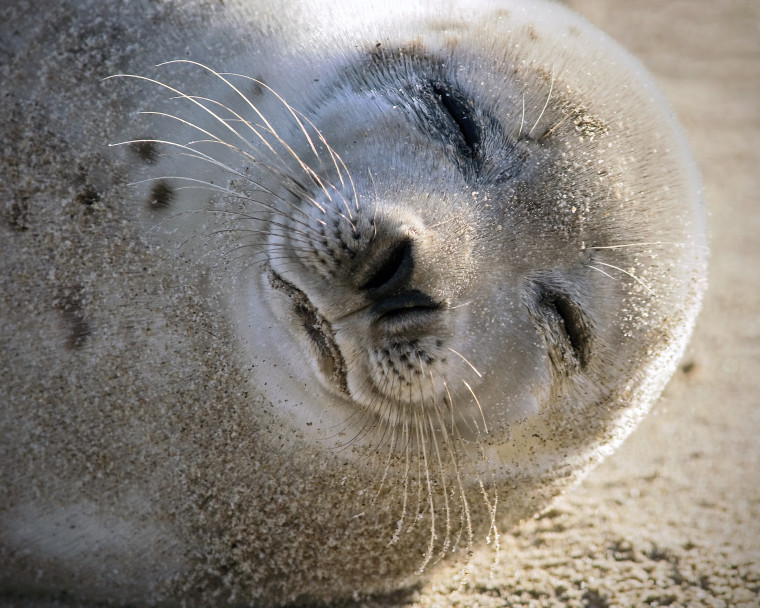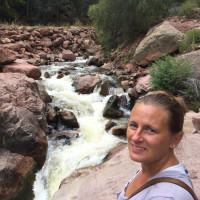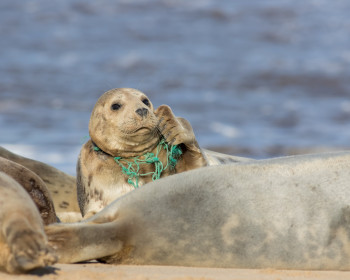The Third Annual World Aquatic Animal Day Receives a Seal of Approval
Open gallery

The 3rd annual World Aquatic Animal Day was once again a monumental success! On April 3, 2022, aquatic animal advocates and friends from around the globe celebrated and spoke out for these often-forgotten nonhuman animals, including individuals and organizations in South Africa, London, India, the Bahamas, the Maldives, Canada, Kenya, the UK, Germany, Australia, Mexico, Sweden, Nigeria, Costa Rica, Italy, Indonesia, Ghana, Chile, Hong Kong, Romania, Norway, Honduras, Spain, Antarctica, Japan, Colombia, Brazil, Croatia, the U.S., and many more. Indeed, Australian politician Emma Hurst, who represents the Animal Justice Party, shared multiple posts across her social media in recognition of the day. Importantly, she chose World Aquatic Animal Day to announce the introduction of legislation—the Aquatic Animal Recognition bill—to amend the Prevention of Cruelty to Animals Act in the New South Wales Parliament.
The day was primarily a virtual event, hosted and led by the Aquatic Animal Law Initiative (AALI) and the Animal Law Clinic at the Center for Animal Law Studies (CALS) at Lewis & Clark Law School. It featured a myriad of aquatic animal experts and educators presenting on this year’s theme – Disentangling the Sustainability Myth in Fishing and Aquaculture. Professor Kathy Hessler, Director of AALI and the Animal Law Clinic, and LLM Alum (’18) Amy P. Wilson, Founder and interim Executive Director of Animal Law Reform, South Africa, kicked off the event, providing a philosophical framework for the day with compelling arguments for redefining the concept of sustainability.
Jennifer Jacquet, Professor of Environmental Studies at New York University, and Lynne Sneddon, Director of Biological and Environmental Sciences University of Gothenburg, continued the discussion, examining unsustainable practices in industrial aquaculture and fisheries from a scientific perspective. Professor Jacquet spoke about the ethical and ecological concerns of octopus farming, presenting a persuasive case against the farming of these sentient aquatic animals. Professor Sneddon discussed the inherent welfare challenges in aquaculture and fisheries, specifically referencing overfishing, harmful and destructive fishing techniques, and the problems associated with “ghost gear.”
Next, LLM Alum (’20) Diego Plaza, Founder of the Center for Chilean Animal Law Studies and Center for Animal Law Studies Global Ambassador, and Amy van Saun (’11), Senior Attorney at Center for Food Safety, reviewed current legal frameworks concerning aquatic animals in both Chile and the U.S. Both speakers provided summaries of some of the outstanding efforts for advancing aquatic animal rights and welfare under the law, including specific cases that exposed significant gaps in legislation and novel strategies designed to fill those gaps.
Miranda Eisen, 3L and Animal Law Clinic student at Lewis & Clark Law School, and Andrew Crump, Post-Doc, Foundations of Animal Sentience Project at the London School of Economics and Political Science, spoke of the future, helping attendees consider pathways to a truly sustainable and desirable future. Ms. Eisen provided a thorough and enthusiastic overview of methods of advocacy—beneficial for lawyers and nonlawyers alike. Mr. Crumb discussed his important work on the London School of Economics and Political Science’s Review of the Evidence of Sentience in Cephalopod Molluscs and Decapod Crustaceans which provided the basis for all cephalopod molluscs and decapod crustaceans to be regarded as sentient animals in pending UK animal welfare legislation.
The lunch time session was led by our community partners: Veggies Do It Better and Animal Rights Collective Portland (ARC PDX). Chelsea V Davis interviewed MacKenzie DeVito, CEO of the vegan restaurant No Bones Beach Club, who made her coastal inspired Po Boy with crispy fried artichokes, cabbage, tomatoes, pickles, onion, and chipotle tartar sauce while talking about her plant-based retail seafood line. Ms. Davis also shared information about the 30x30 campaign and offered ways to encourage governments worldwide to protect our oceans.
Following the Lunch & Learn session, Matthew de Gruyter, owner of Next Level Burger, described his path toward veganism as well as his efforts to persuade humans to adopt a plant-based diet, thoroughly answering a myriad of questions from attendees and moderators. He also explained the importance of adding alternative seafood to his menu. In case you missed it, we will soon be sharing recordings of all panels from the webinar on the CALS YouTube and social media.

The Aquatic Animal Law Initiative and the Animal Law Clinic are incredibly thankful to everyone who participated in World Aquatic Animal Day. In addition to the participants in our virtual sessions, a vast number of individuals, groups, and organizations from around the world participated in the day through their own events, social media posts, and other media platforms.
We are grateful to everyone who helped make this day a success and we are already looking forward to next year’s World Aquatic Animal Day when we will focus on Alternatives to the Uses of Aquatic Animals!


The Center for Animal Law Studies (CALS) was founded in 2008 with a mission to educate the next generation of animal law attorneys and advance animal protection through the law. With vision and bold risk-taking, CALS has since developed into a world-renowned animal law epicenter, with the most comprehensive animal law curriculum offered anywhere. In addition, CALS is the only program that offers an advanced legal degree in animal law (LLM) and a Master of Studies degree for non-lawyers (both degrees offered in-person and online) and three specialty animal law clinics. CALS is only able to provide these educational opportunities through donations and grants.
More Center for Animal Law Studies Stories
Center for Animal Law Studies is located in Wood Hall on the Law Campus.
MSC: 51
email cals@lclark.edu
voice 503-768-6960
Center for Animal Law Studies
Lewis & Clark Law School
10101 S. Terwilliger Boulevard MSC 51
Portland OR 97219

